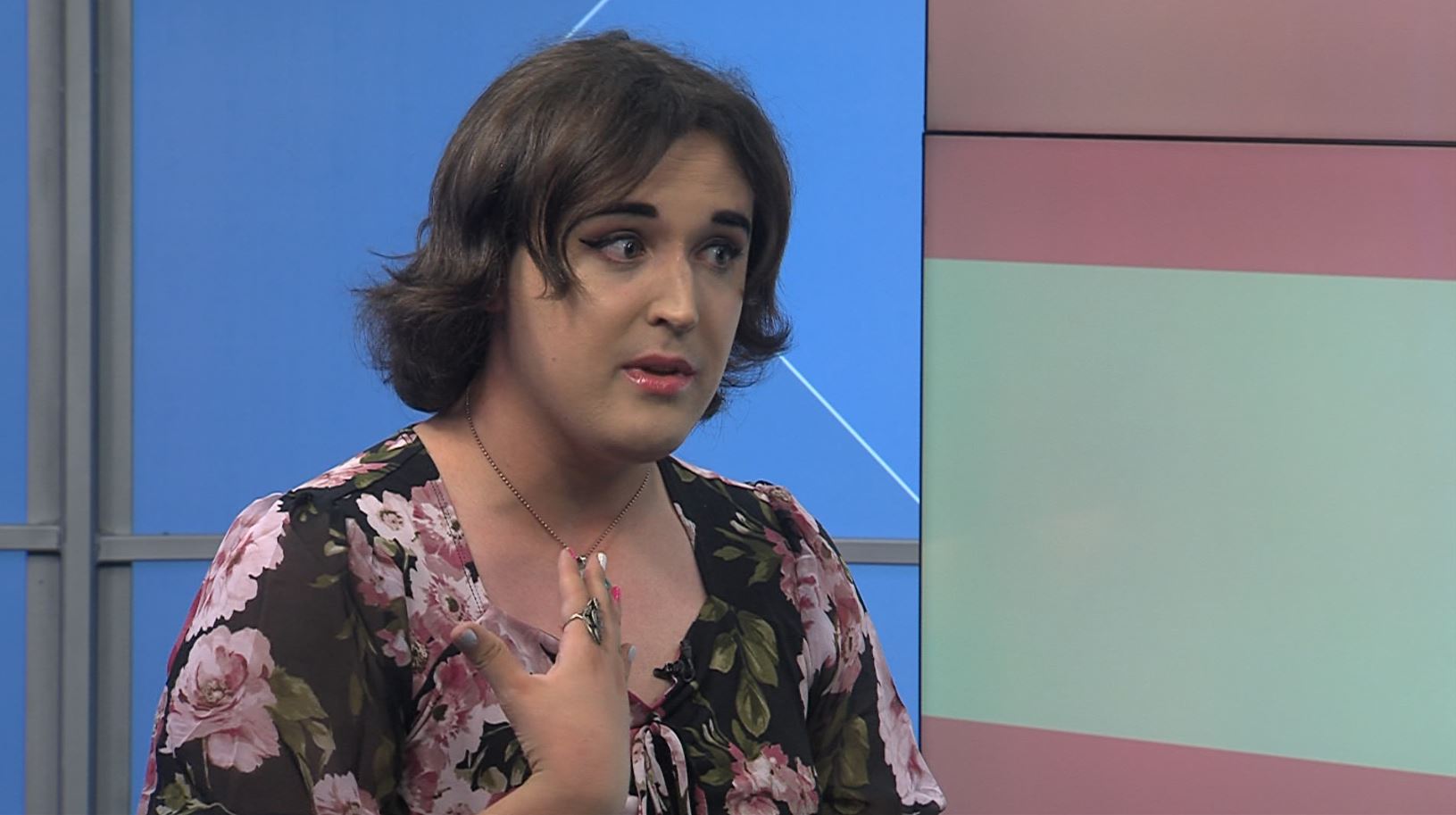As an on-air reporter, Nora J.S. Reichardt is used to being in front of the camera, but for the first time last week, she became the lead story. The Des Moines-based reporter came out as trans after working at Iowa ABC affiliate Local 5 News for over a year, reintroducing herself to viewers in a segment that aired on October 5.
To her complete shock, her coming-out segment blew up, garnering thousands of views and shares on Twitter.
“No one is more surprised about the reception to this piece than me,” Reichardt tells Xtra. “I’ve gotten so many amazing comments from people here in Iowa, [and] across the country. I got one email from as far away as Australia, from people who had seen this story and just were talking about how meaningful it was to them.”
In the segment, Reichardt details her experience of coming to terms with her identity and starting her transition during the pandemic. “I didn’t know if there was a place and a space for me to do this sort of work that I’ve really come to love and enjoy while also getting to be myself while I do it,” she says in the video, which was produced by her former co-worker Eva Andersen.
Reichardt describes the journey of opening up to friends first, then parents and co-workers, and ultimately her audience, an experience that was equally thrilling and terrifying. “There was a decent span of time where everyone in my life functionally knew me as Nora, except for the viewers at home,” she says in the video, adding that it felt like “splitting myself into two.”
Before coming out on air, Reichardt took several weeks off work to mentally prepare for what her public coming out would entail. She didn’t want the segment to come across as a vanity project, but at the same time, she saw an opportunity to both share her life with her the public and potentially educate cis viewers who might not know any trans people in their daily lives.
“I was making a lot of phone calls to other contacts within the journalism industry, other trans connections of mine—in some cases, the intersection of the two—and just trying to pick as many brains as possible on: What can this look like? What should this look like? What is most beneficial to people?” she tells Xtra.
Reichardt knew that taking this step would involve opening herself up to potential online hate and harassment, but she says that the overall response has been overwhelmingly positive. “I’m really grateful for the number of people who reached out to me and shared that the piece has been meaningful,” she says. “The night the story first aired, I had a mom right here in Iowa reach out to me, and she sent me a picture of her and her daughter who was trans, and was telling me how much it meant to her to have someone on TV that she could show her daughter who was like her. And when I tell you, that made me ugly-cry.”
With trans issues increasingly in the spotlight, Reichardt understands the importance of visibility during a difficult political moment. This year, Republican lawmakers in the U.S. have introduced a record number of bills attempting to criminalize gender-affirming healthcare for trans youth and prevent them from competing on sports teams.
“Knowing that I had institutional support for me, and that a lot of people in my position don’t get that, I felt a much stronger responsibility to do something more public-facing with the piece,” she tells Xtra, noting that the past year of being a public on-air face and building up trust with local viewership definitely helped as well.
Reichardt says she hopes to use the momentum she’s gained from sharing her story to shed light on other local trans stories that aren’t being told and to find “opportunities to use my position and use my privilege to hopefully help the broader community as a whole.” Although some might argue that her trans identity makes her reporting inherently biased, she believes that the media can only benefit from the wealth of expertise she and other journalists offer when it comes to covering LGBTQ2S+ lives.
“I promise we’re more interesting than bathrooms or sports or whatever,” she says in the video segment. “We’re living wonderful, fulfilling lives outside of that.”
Ultimately, Reichardt says she’s just “along for this ride just like everyone else.” “I’m so excited to get to keep showing central Iowans and the viewers at home what this sort of process is like,” she says. “So often misinformation is fuelled by people who’ve never gotten to meet someone like us. Being able to introduce myself as who I really am and hopefully using that toward a better future for all of us is the greatest privilege I could imagine having in my life.”


 Why you can trust Xtra
Why you can trust Xtra


